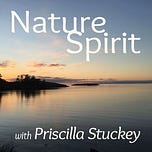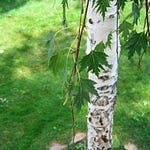So I keep coming back to the anti-maskers, how their refusal to do this one easy thing sounds so angry, so rebellious. But might they have something to rebel against after all? Today we look at the concept of community that dominant American society inherited from Europe, in which community exists to mold people into similarity, making individual freedom a prize to be won through struggle. The dichotomy is visible in conservative communities, like the one I grew up in, but it runs throughout American society as well—in education (turning students out in identical batches) and mass marketing (same devices, same clothes). I’ll never forget when I glimpsed a different way—from Malidoma and Sobonfu Somé of West Africa, who said that “community exists to help individuals remember their purpose.” What a radical idea—that a group can enhance individuality and nourish the uniqueness of each member! We need this radical reimagining of community to pull together during a pandemic. And reimagining community will give us much more adequate tools for addressing the climate crisis and healing our broken relationship with the rest of nature.
Transcript
So this coronavirus is a great demystifier. It’s pulling aside the curtain on fractures in our society, the weak places that keep us from pulling together as a community during a pandemic. Fractures like racism and inequality. And today I’d like to talk about something that underlies all the weak points, and that is a deep ambivalence in American culture toward community itself.
I keep coming back to the people who refuse to wear a mask. There’s a rebellious quality to their refusal, a “you can’t tell me what to do” spirit that reminds me for all the world of when I was a kid and my older brother became a teenager. I couldn’t believe the transformation—seemed like overnight—from a nice guy who looked out for his kid sister and let me play football with him and his friends into an angry young man who stormed around the house and lashed out at everyone, including me.
My brother had good reason to be angry. I could see it even then. Our parents were not listening to what he needed or wanted. They were dead-set on forcing him into the mold they wanted for him. Because children were supposed to obey their parents. It was an authoritarian model of family.
I’ve talked before about how my parents learned to be authoritarians from our church community, which was Mennonite, a church that throughout my parents’ lifetimes had been strongly authoritarian and patriarchal. When I was growing up, in the 1960s, Mennonites too were changing fast, along with the rest of American society, but I still got the feeling that becoming an adult had very little to do with learning how to step more fully into myself, whoever that might be, and much more to do with learning how to step into an adult pattern that had been laid out in front of me by others. It was a lot about conforming, in other words. Matching other people’s ideas of what counts as a good or successful person. And growing up was certainly not about finding and nurturing my own internal authority. (I also know that others may have experienced the community differently.)
As Mennonites, we also had strong bonds of community, and we knew how rare these were. At the time I was growing up, only a few decades had passed since neighbors helped each other out with barn raisings and communal threshings to harvest grain. We contrasted our communal ways with what we saw in the rest of American society, which we called individualistic, and we were pretty sure community was better.
But here was the problem. Even after centuries of living in close communities, we had a pretty limited view of community life—becoming similar to one another and following the directions of leaders. We’d inherited this view from our European Christian roots, where it had been the model of community for hundreds of years. For instance, think of the hierarchical authorities in both towns and churches throughout medieval Europe. Also, the divine right of kings. Plus a thousand years of feudalism, where a few people at the top of society exploited the many below.
So the idea that community means conforming and following orders sailed across the ocean with my ancestors and with other European settlers to North America, where its influence spread beyond religious communities. Today these themes still echo throughout American society. I think of how education still follows an assembly-line model of turning kids out in identical batches. I think of mass marketing—how it presses all of us into the same mold so that everyone buys the same tech devices at the same time and wears the same kinds of clothes. More recent immigrants who may want to preserve their own cultures experience discrimination, even hate, for being different.
For all the talk of diversity in this country, many of us don’t like it much after all. Similarity is a lot more comfortable.
And these pressures to conform suggest that something is amiss in our basic configuration of community. About those anti-maskers? When I’m not feeling completely impatient with their angry tone, I can actually understand what they might have to rebel against, especially if they live in more conservative or authoritarian parts of the country. Long ago I also understood what my teenage brother had to be angry about.
When it comes to community, there seem to be only two options: joining up and conforming or refusing to join and preserving your individuality. The anti-maskers reveal the dichotomy in dominant Western culture between individual and community, the two sides locked in a perpetual struggle for power.
I’ll never forget the moment when I glimpsed a third way. I was attending a workshop many years ago led by Malidoma and Sobonfu Somé, a couple from Burkina Faso in West Africa, whom I’ve mentioned before. They’d been commissioned by their village elders to come to the West and help cool down the fires burning inside Western people, which the elders in Africa could see were on their way to burning down the whole world.
Why were we in the West burning up? As the elders saw it, it was because we were not doing our grief work; we were not feeling the feelings and shedding the tears that would help us cool down our own internal heat. So Malidoma and Sobonfu were leading workshops on grieving.
The thought that Western people are overcome with grief without knowing it was a new one to me. But what was even more striking was the reason they gave. Malidoma and Sobonfu said that we in the West experience so much grief because we’re missing what all human beings need to thrive: the loving support of a community. Because in their village, they said, it starts even before a person is born.
When a woman becomes pregnant, they said, everyone gets excited because it means that the ancestors are sending a new person to join the village, and this new person will bring gifts that the village needs. So the villagers take steps to find out what this person’s gifts will be. They hold a special ceremony where they communicate in spirit with the new person to hear directly from them what gifts they plan to bring. And then the community remembers for them, because the process of being born leads a person to forget what they came here to do.
And here’s where the community becomes crucial: Sobonfu and Malidoma said, “The community exists to help individuals remember their purpose.”
I could hardly believe my ears. The community existing to serve individuals? To help them become their best and most unique selves? It sounded like a dream—the idea that community does not erase individuality but enhances it. That it might actually act to bring out each person’s selfhood. It was a radical thought.
I felt like a strong wind had just whipped around my head, strong enough to lift the roof right off. This wind was fresh. Invigorating. Without that old roof, I could look up and see a lot more sky.
When it came to community, there were more than two choices, either subservient conformity or rebellious individualism. That old dichotomy had just been blown away.
What I’ve learned since about traditional African thought backs up what Sobonfu and Malidoma said that day. I think of the Ghanaian-born sociologist George Dei, who teaches in Ontario. Dr. Dei says that many Africans do not experience a dichotomy between individual and community in the way that Western people do. In traditional African thought, he says, individuals are “enriched by community,” even as they contribute their own gifts to their community. The nourishment always flows both ways.
It’s a model of community that we in the West need to learn from, and quickly. Because here’s the thing. Pulling together is crucial to outwitting this virus, first of all. But this virus is, in a sense, a dress rehearsal for the even bigger crisis of climate change, which also faces us. And the same fractures that weaken our collective response to the pandemic will also be operating, we can be sure, when we address the climate crisis.
And here is the other reason that reimagining community is so important: We need to be able to see community as an enlivening, enriching experience for every individual within it if we are going to reimagine our human relationship with the wider community of the natural world. The model of community we inherited from medieval Europe—of hierarchical groups trying to mold individuals into conformity—has nothing to teach us about the communities of the natural world—how winds interact with waters or how birds and flowers and insects share their territories.
In that old model, we humans placed ourselves at the top, holding power over the rest of nature, and that’s exactly how we got ourselves into the deep trouble we’re now in. It will take reimagining community to help us meet the ecological crises, which are by definition fractures in the wider community of Earth. It will take reimagining community as connecting all its members in loving support before we can look at the nature in our own yard or neighborhood or region and experience all its diverse parts as connected to one another and enhancing one another and crucial to the health of the whole.
Many people today are working on this new imagination, and I’ve added information about some of them on my website next to the transcript from today. But there is room here for much more creativity, and especially for each one of us to nudge our own imaginations toward more nourishing images of community, and then to bring those images to life in the places where we live.
Here’s wishing for you to be surrounded by those who love you and encourage you and support you in releasing your truest gifts into the world. May you offer your gifts freely and know the support of human and natural worlds alike.
And one more thing? Please wear a mask.
For digging deeper
Ed Yong at The Atlantic is writing thought-provoking pieces about the pandemic, and a recent one looks at fractures in American society that weaken our collective response: “America Is Trapped in a Pandemic Spiral.” Even aside from disastrous mismanagement and neglect at the center of American government, Yong argues that basic errors in our collective thinking are getting in our way.
If you’ve never watched Sir Ken Robinson’s 2010 talk, “Changing Paradigms,” on shifting the industrial assembly-line model of education, it includes some amazing whiteboard animation by RSA Animate. The concept of “turning students out in batches” comes from that talk.
I found George Sefa Dei’s comments about individual and community supporting each other in “Afrocentricity: A Cornerstone of Pedagogy,” Anthropology and Education Quarterly 25, no. 1 (March 1994). Dr. Dei gave a TEDx talk on being an Indigenous scholar that is available on YouTube.
A few years after I attended Sobonfu and Malidoma Somé’s workshop on grieving, I became the development editor for Malidoma’s book The Healing Wisdom of Africa: Finding Life Purpose Through Nature, Ritual, and Community, which is one long meditation and guidebook on building communities that exist to support and nourish individual members. Malidoma continues to offer teachings and programs in African spirituality and in connecting with nature and community.
The School of Lost Borders is a group in southern California that for nearly forty years has been leading people in building their connections with other humans and with the rest of nature through rites of passage and wilderness fasts. They have accumulated much wisdom about fostering authentic community.
The 8 Shields organization also offers classes and programs in building authentic community with others and nature in various parts of the world. It was founded by Jon Young, one of the authors of a huge guidebook of ideas and exercises for connecting with nature called Coyote’s Guide to Connecting with Nature.
My book Kissed by a Fox is in part an extended meditation on this very old tendency in the Western world to pit individual against community. It includes stories and examples of various Indigenous cultures that imagine their communities differently, with the implication that friendlier ideas about human community go along with friendlier relations with the natural world as well.
Story developing now
In the wee hours of this morning the world learned that Donald Trump and Melania Trump both tested positive for the coronavirus. Andy Slavitt, who helped bring the Affordable Care Act into being in the Obama administration, hosts a terrific and informative podcast on the pandemic called In the Bubble. Today he published a special episode, “Breaking: Trump’s COVID Diagnosis,” with some pointed remarks on what needs to happen next.














Share this post